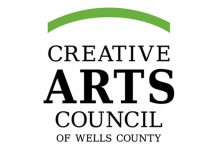Most teachers I know work with altruistic intent. They believe they can make a difference for a child and a community. Money, although important, is not their chief motivation. Given that teaching requirements differ due to grade levels and subject assignments, there exists a great variety of responsibilities among teachers. One size does not fit all.
And, if there is one thing I do know after 40 some years in education it is that the best thing an administrator can do for good teachers is to get out of their way.
How do great teachers work? Simply put, they make students critical thinkers through passion for their subject. A biology teacher, for instance, has a book about six inches thick; a general overview at best. Surely, you remember carting that massive book from your locker to the classroom and back to your locker? Is it possible or practical to know everything in that book? No. If you were to approach a local respected doctor to explain everything in that book from procaryotes to climate change to protein synthesis, he would likely not be able to do that. It is left to the good teacher to teach that which he finds most important or that for which she has the most passion. Teachers seek autonomy. Without autonomy there is no joy in teaching.
Why do we find a lack of teaching candidates? Yes, money is one factor, but the loss of autonomy is bigger. Loss of autonomy comes from micro-management and unreasonable interference from well-meaning parents and legislatures. While some, as evidenced by our last school board elections, want to put limits on what may be taught in our schools, I for one, want my children to be exposed to other cultures, to learn of other religions, and to be challenged by teachers to question conventional ways of thinking. I want them to develop some power of discernment in separating truth from lies. I want them to learn to think.
Some in our Indiana legislature want to redefine education as we know it, seeking to influence schools to improve upon the state’s return on investment. In other words, let’s be practical and apply a market-based approach to high school education. Let us create more craftsmen, plumbers, electricians, accountants, nurses. The list goes on.
That’s not an unworthy goal. However, if done on a wholesale basis, we begin to lose other benefits of education, that of creating a well-rounded and “educated” citizen. Students have legitimately asked these common questions forever: “When will I ever need to know algebra?” “Why do I need to study English literature?’ ‘Why do I need to study the history of Western civilization?” I do not have a satisfying answer, but I do know for sure that most of what we do know and find productive we discover on our route to somewhere else. This makes measuring ROI in education through job placement statistics misleading.
Ball State University economist Michael Hicks has written extensively about this in our own newspaper. What we lack in our Indiana communities is not more manufacturing jobs, which are declining, rather more educated citizens. We have a significant problem in Indiana with “brain drain.” Too many of our college graduates leave our community and state either in search of better employment opportunities or a better and more satisfying way of life. College graduates bring higher incomes and pay more taxes. They support and participate in more non-profit and philanthropic organizations. They support and encourage the arts and public works.
In other words, college educated citizens are essential in creating an environment that attracts more of their own kind. Everyone, including the schools benefits in measurable ways.
According to Hicks, more highly educated citizens are attracted to communities that have excellent schools, access to the arts, public works, and access to good healthcare. We are so fortunate, through the work of many, to have much of this in place.
This is what is so discouraging about the recent flap over whether we are an “inclusive community.” Do my adult children want to live in a community where public officials scoff at the idea of inclusivity, or who make no apology for having been a member of the white nationalist Oath Keepers? Do educated young people want to live in a community where a universally loved “Teacher of the Year” is essentially forced to retire because she posted a small sign on her bulletin board expressing support for a few minority students? The answer is no, and that is a problem for our community.
Here’s The Thing: There is an old sign I have seen hanging in a handyman’s workshop. “All work $10/hr. Want to watch? $15/hr. Try to help. $20/hr.” I love sports, but I would be ill advised to tell Michael Jordan how to play basketball, or to suggest hitting tips to Aaron Judge.
Public education is the foundation of democracy. Trust is an essential component that should allow teachers and educators to operate with significant autonomy. While some oversight from legislators and parents is necessary, both should acknowledge that the best schools and the best outcomes result from teachers and schools free to rely upon their own expertise.
ken.ballinger@yahoo.com
———
Editor’s Note: This is one of a series of articles written by a group of retired and current teachers — Ken Ballinger, Billy Kreigh, Marianne Darr-Norman, and Anna Spalding. Their intent is to spur discussions at the dinner table and elsewhere. You may also voice your thoughts and reactions via The News-Banner’s letters to editor.



